You’ve sold your house, you’ve found your new home and now all that’s left to do is move in. That’s the easy part, right?
Most people seem to think so, but we’ve found that there are often many things most people haven’t accounted for when it comes to moving. For example, have you given your broadband supplier a heads up? Do you know where the fuse box is in your new home?
That’s why we’ve put this checklist together, to help ensure that you don’t get caught out when moving day finally arrives.
1. First things first, confirm the date of your move.
Yes, it may sound a little silly, but you need to have your moving date officially confirmed by your conveyancers and the sellers of your new home.
If you’re going to be renting the property, you may be able to spread your moving process across a few days! By doing this, you can get into your new home as soon as possible and begin on any necessary work, such as cleaning carpets and painting rooms. This means less stress for you in the long run!
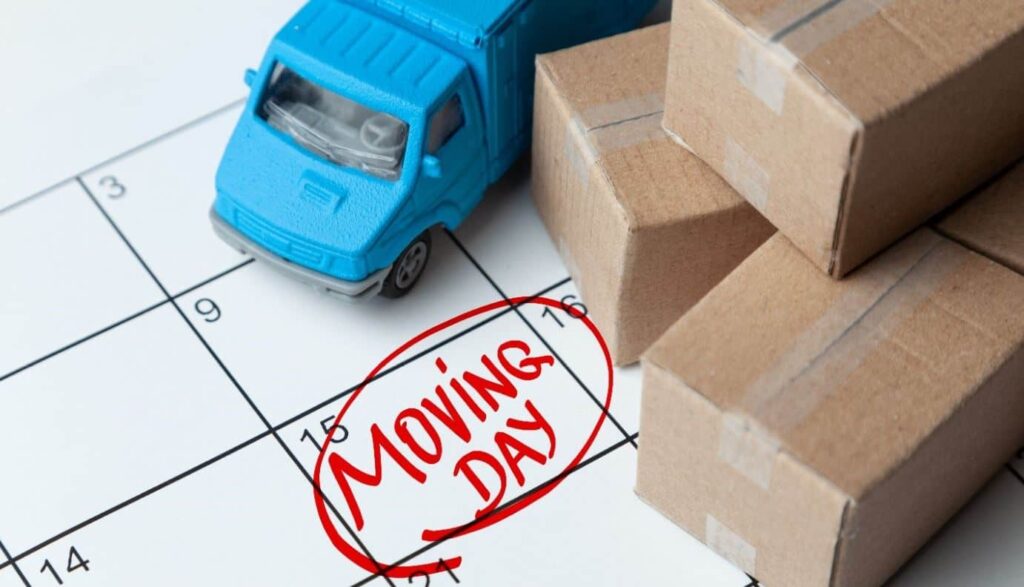
2. Contact your utility suppliers.
This is the one we find people forget most often, or leave until the last minute. You must let all of your suppliers know that you’re planning to move. This includes your suppliers for:
- Electricity
- Water
- Gas
- Phone
- Broadband.
In most cases, you’ll be moving your phone and broadband over to your new property. Be sure to give them as much notice as you possibly can, because moving services to a new property can take up to several weeks.
You may also find yourself having to wait for a new internet connection to be set up at your new home, so be sure to download anything that’s important or that you may need.
Things such as:
- Appliance instructions
- Directions
- Films you’ve been meaning to watch
- Generally important documents.
If you do find yourself without internet once you’ve moved in, you can always try turning your phone into a mobile hotspot. It may not be a long term solution, but it will certainly help you to keep on top of things while waiting!
And last but by no means least, be sure to take a final meter reading in your old property and then pass them onto the appropriate suppliers. We recommend taking a picture, as photos often have timestamps (or you can set a timestamp function), which will prove exactly what the meter reading was when you took the photo.

3. Get prior quotes on any removal costs
When it comes to removals, it all depends on what’s practical for your budget and the overall size of your property.
If you happen to be moving into a small property, or if cost is a large factor, it’ll probably be cheaper to rent a van and get a few friends to help in cases where that’s possible. However, it’s good to keep in mind that this option can very easily add to the stress of your moving day, so make sure it’s the right option for you!
Regardless of whatever route you choose to go down, make absolutely sure you’ve got all your valuables and personal documents in a safe place. In fact, if you can, we recommend keeping them on your person at all times throughout your move.

4. If you’re currently renting – give notice to your landlord!
You need to give your landlord adequate notice of your moving plans and tell them the exact date you’ll be moving out. If things work out well enough, this should coincide with the end of your lease anyway – meaning you can avoid paying for both your rent and your mortgage at the same time.
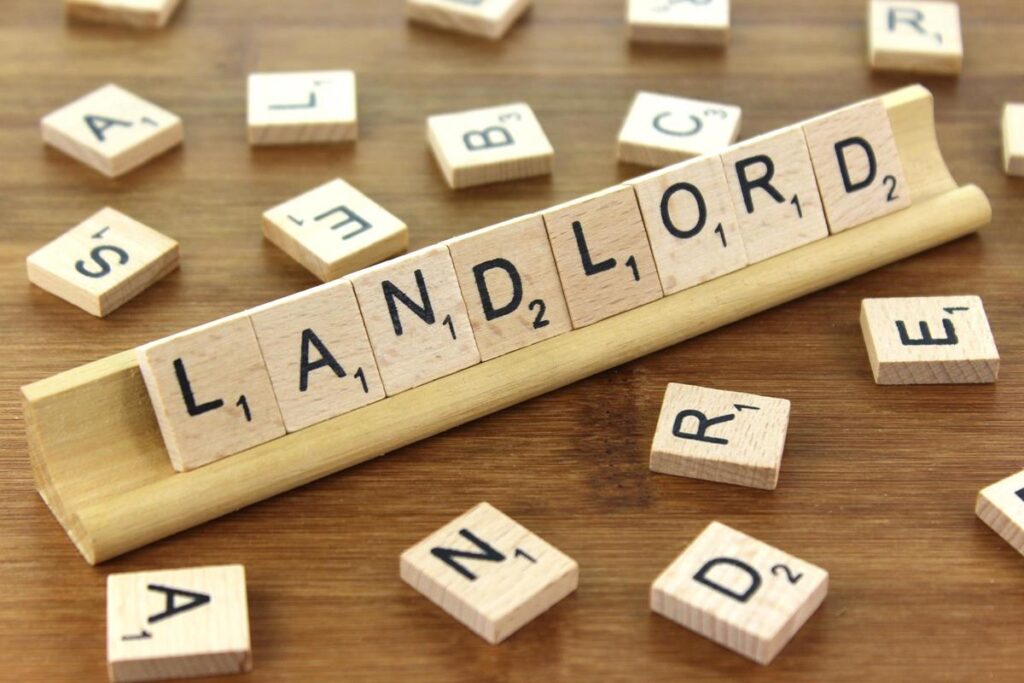
5. Make a list of where EVERYTHING is in your new home before moving.
Most people will, understandably, wait until there’s an electrical fault or a leaky radiator before they try to figure out how to switch these things off/ back on again. But why put that extra stress on yourself during an already stressful situation, when you can prepare yourself beforehand?
You should always ask the sellers of your new property exactly where the following things are:
- Stopcock (valve for controlling the main water supply)
- Instructions for appliances
- Gas and electricity meters
- Thermostat
- Fuse box
If you’re selling, make a list of where all the important things are in your home, and leave it for the people moving in.
They’ll really appreciate you going the extra mile, and it may come in handy if you need to ask them for a favour (like posting those shoes you bought online and sent to the wrong address).
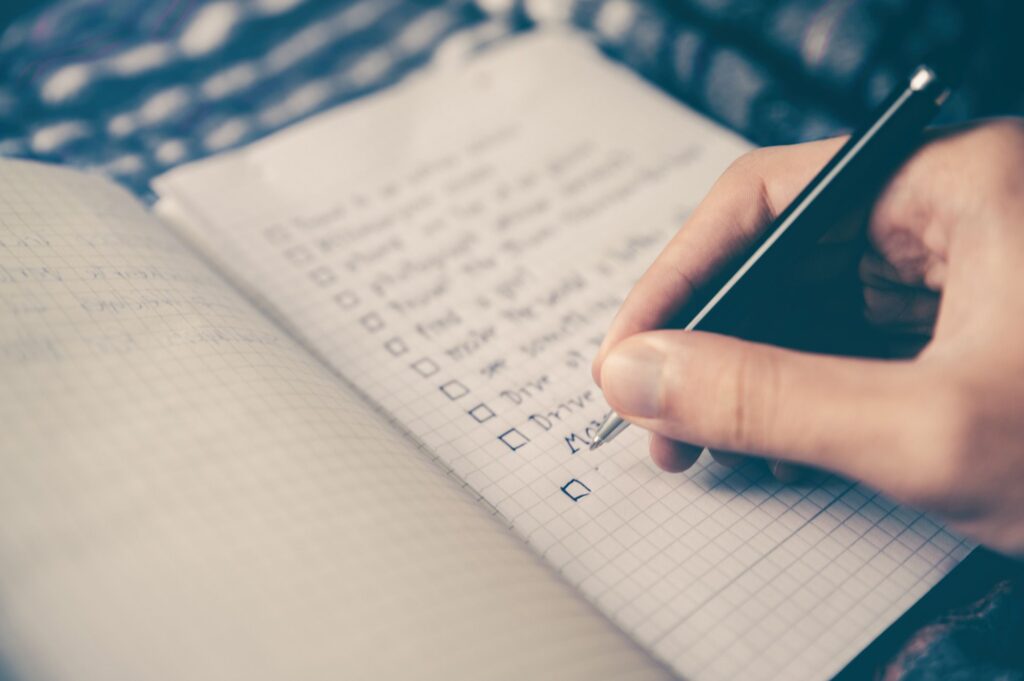
6. Clear out before you move out
What better time to go through all your old bits and pieces and decide what is and what isn’t worth keeping than before a big move?
Before you begin packing up your belongings, ruthlessly go through all your old clothes, electronics and furniture. Decide what’s actually worth keeping and what can be dropped off at the local charity shop, or even sold to make a little extra money!
It’ll save you a lot of time, effort and backache in the long run if you cut down on the number of things you’ll be taking with you into your new home. And just think of all the extra space you’ll have!

7. Pay for bills, let friends and family know you’re moving
Settle up your bills! And of course, any council tax that may still be owed on your old property. At the end of the day, you don’t want any bills coming back to bite you in the backside when you’re all nice and settled into your new home.
Make sure you contact the following people to let them know you’re changing your address:
- Your work
- Your bank, insurance, pension and credit card companies
- The council, electoral roll
- TV Licensing
- Doctor and dentist
- DVLA
- National Insurance / DSS offices
Bonus Tip – Don’t forget to delete your old address from all online retailers (such as Amazon). Otherwise, you may wake up one day and realise your package has been delivered to an old address. A nice treat for the new owners, an annoying inconvenience for you!
Once that’s all done and dusted, send out one big email to all your friends and family (well, those of them you want to know) to give them your new address and the exact date of your move-in.
They might not need your new address right away, but when events such as Christmas and birthdays start to roll around, you don’t want to be left out of the card loop! And no doubt they’ll be grateful that you’ve planned ahead.
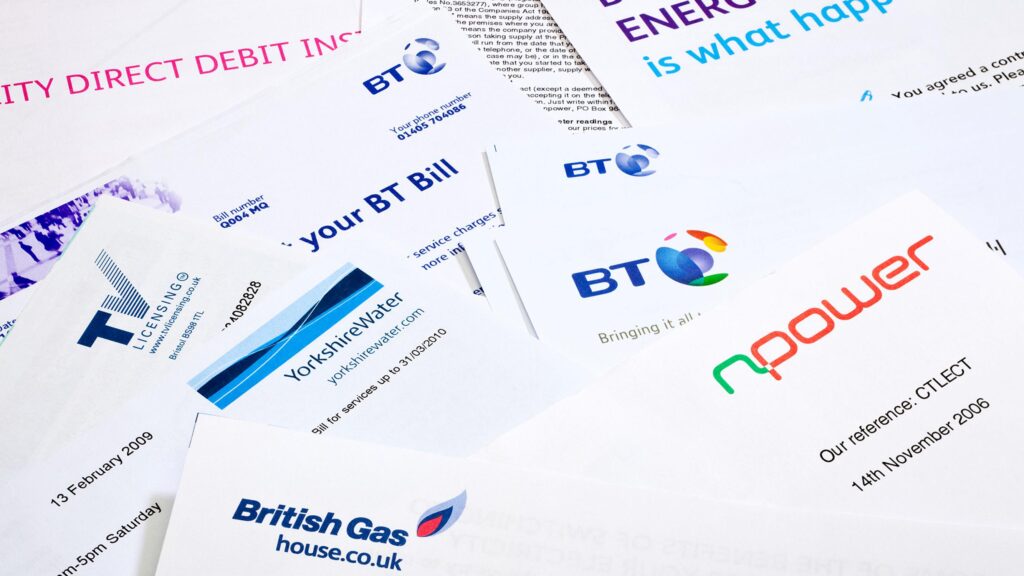
8. Pack everything – and label your boxes!
We can’t stress enough how much easier this simple step will make your move. Labelling boxes may not be at the forefront of your mind when you first start to pack everything – you probably just want to get everything done as quickly as possible.
But trust us, when you finally move into your new home, you’ll be so glad you did!
When you’re packing everything up, label all the boxes properly. You could even go as far as to make a list so you know exactly what’s inside each box after the journey.
Want to be even more organised? Make a checklist of what’s in each box, so you don’t have to root around whenever you’re trying to find something, and you know exactly which box belongs in which room of your new property!
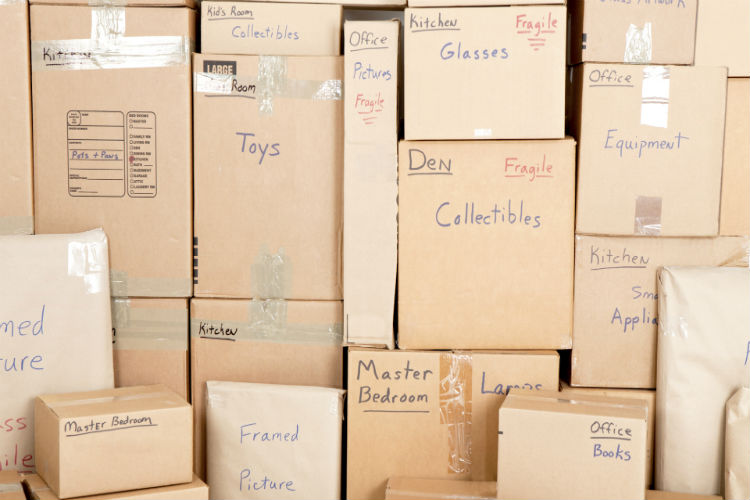
9. Get together your moving day essentials.
You’ll need all the “essentials” possible for your first night in your new home, so we recommend making a dedicated box or two (or suitcases!) with the following things to hand:
- Kettle, mugs, tea, milk, coffee, sugar
- Cleaning products, plus vacuum cleaner and bin bags
- Phone and laptop chargers
- Loo roll, kitchen roll
- Duvet and bedding for the first night
- Temporary furniture – deck chairs etc.
- Television or radio
And as we stipulated before, make sure you keep all your important documents, like your passport and mortgage paperwork, where you can easily find them and you can quickly get your hands on them.
10. And of course, moving into your new home!
Once you’ve finally unloaded everything, it may be a good idea to do a deep clean of the property before you actually start unpacking. Why? Not just for hygiene – this is definitely the easiest time to scrub tiles and clean carpets as necessary.
After that, you should:
- Unpack room by room, starting with the kitchen
- Check all the utilities are up and running
- Make sure you have keys to every door, window and cupboard
- Find out what day your bins are collected
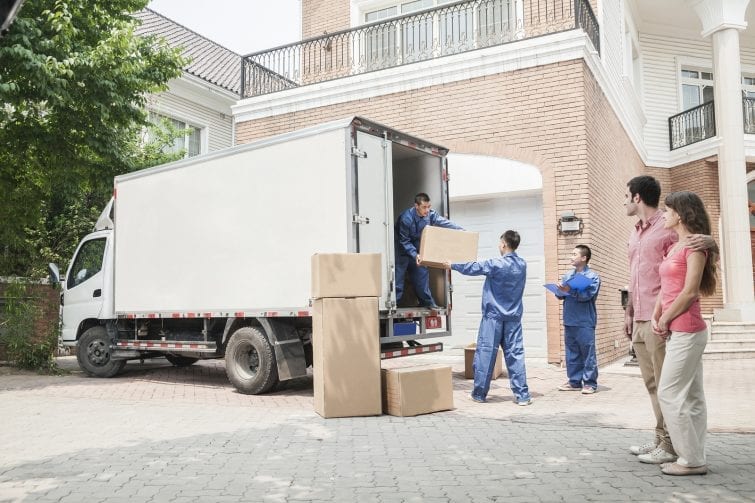
And now we’ve reached the most important (and enjoyable) part of all; take the rest of the night off! Make a cuppa, put your feet up, find a local takeaway, order something delicious and simply enjoy the officially beginning of life in your new home – you’ve certainly earned it!
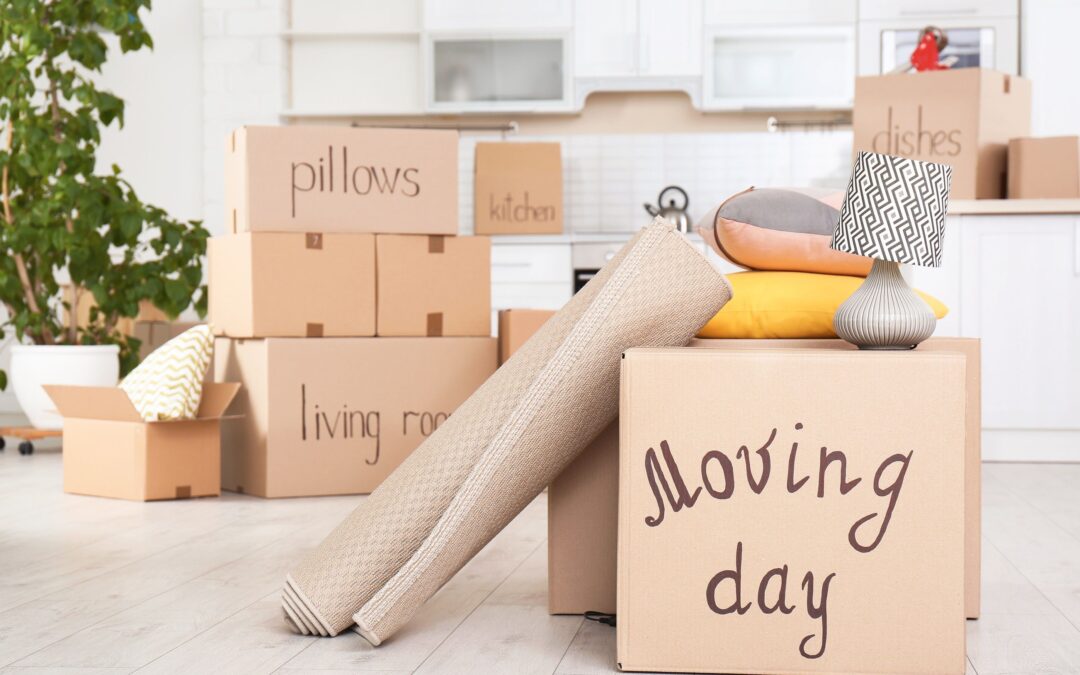
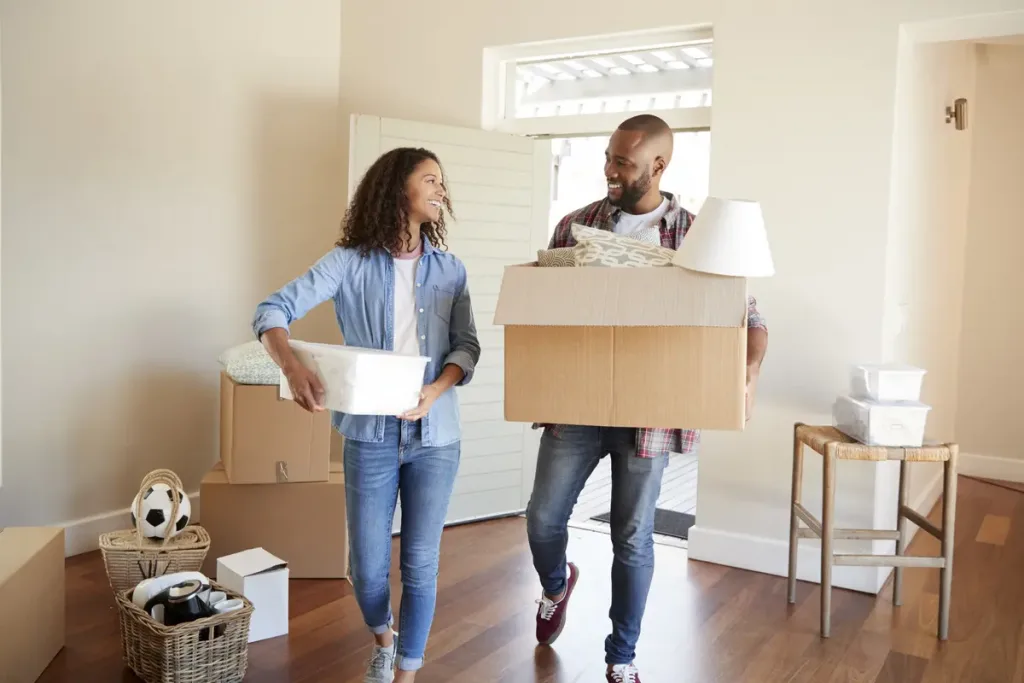
Recent Comments